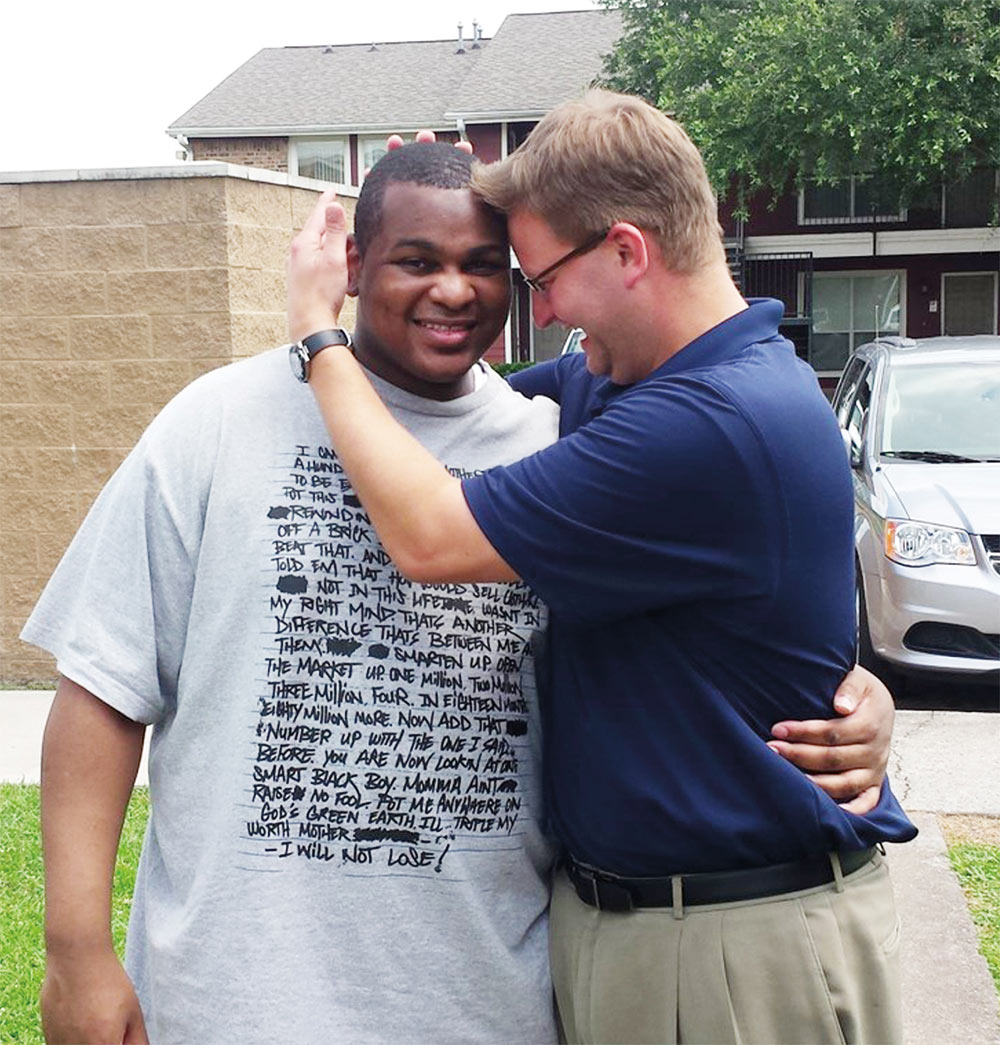An innocent man convicted of capital murder, a tenacious attorney committed to reversing the sentence and a key piece of missing evidence that would lead to exoneration — anyone familiar with crime dramas might point to these as the ingredients of a sensational thriller. But the story of the eight-year battle Brian Stolarz ’95 fought to reverse the death-row conviction of Alfred Dewayne Brown is anything but fiction. It’s one of eight true stories featured in Netflix’s The Innocence Files, a documentary series released in April that shines a spotlight on miscarriages of justice.
As detailed in the series’ eighth episode, “The Prosecution: Hidden Alibi,” when Stolarz met Brown in 2007, it marked the first time the former public defender had represented someone charged with murder. Brown, an African American in his 20s, was convicted of killing a police officer during a robbery in Houston and had been on death row for two years when Stolarz began defending him pro bono.

For nearly a decade, Stolarz and colleagues worked to dismantle the case, which resulted in several key witnesses recanting testimonies that contradicted Brown’s alibi. The final breakthrough came when a phone record proving that Brown was home at the time of the robbery was discovered in a box in a detective’s garage. In March 2019, an independent prosecutor declared Brown innocent, making him the 154th death-row inmate exonerated in the U.S.
“Whether it’s faulty forensic science, witness misidentifications or prosecutorial misconduct, it’s important for the public to see that the system is incredibly broken in many ways,” says Stolarz, who maintains a close friendship with Brown. “One way we create accountability for fixing the system is by being persistent in what we believe in and sharing powerful stories like this one.”